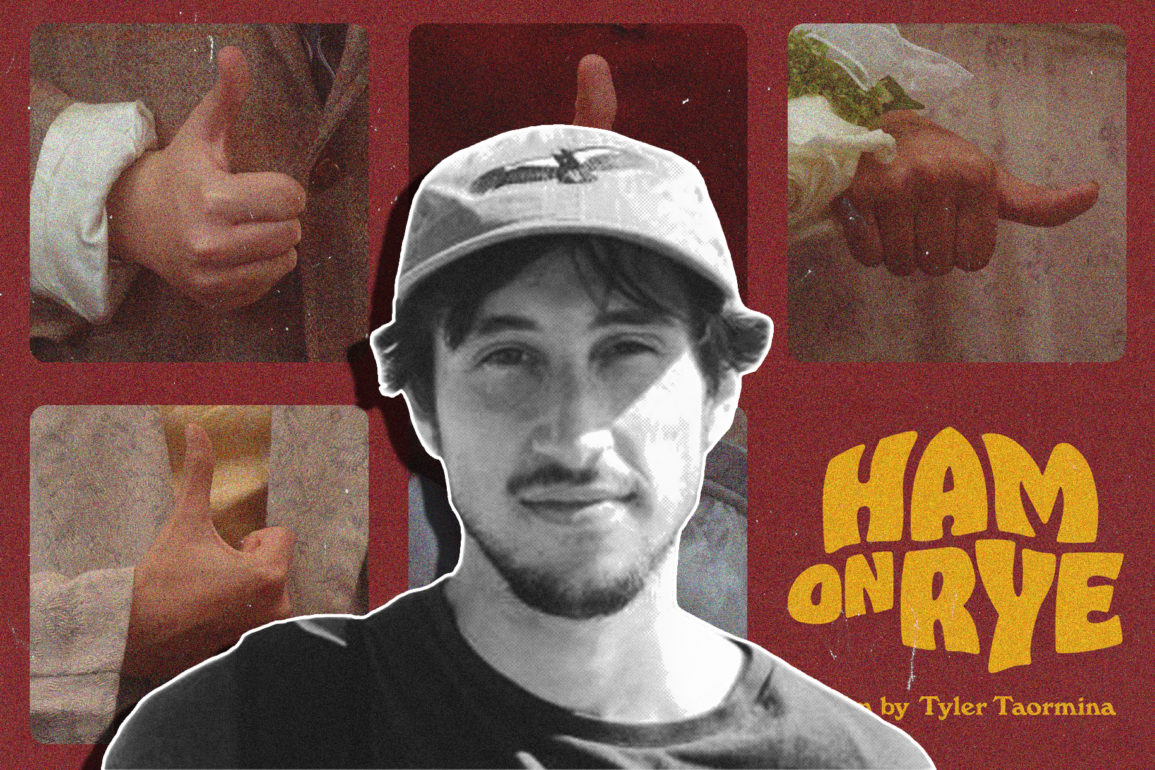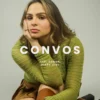How did you start your career as a filmmaker? Can you tell us a brief background of yourself and your journey?
I began in kid’s television as a screenwriter. I wanted to make the next Hey Arnold!. I realized quickly that nobody was going to read my screenplays because nobody knew who I was. I thought the only way to have my ideas known was to make them myself. I fell in love with filmmaking and deep in to the pit of great cinema.
Congratulations on your feature directorial debut, Ham on Rye! Can you walk us through the process of preparing for the role?
Thank you! The best way to prepare for making a feature is through making a hefty short film. My first film Wild Flies was pretty much a featurette. The first cut ran 45 minutes and the cast was extensive. That was my training. The biggest challenge was easily the mind games of post-production. Making the film was a very fun time. My advice to filmmakers about directing is to gain as much of a cinematic literacy as you possibly can. Some filmmakers come from other disciplines such as photography, poetry or philosophy and approach the canvas with a fresh, untainted by references. But truthfully, these days, most of us are programmed by the banality of television and what Peter Watkins calls monoform and it infects our every filmic decision (or more often total lack thereof) without us even realizing.
How long did it take you to write and develop the story? What inspired you to write it? How do you think this story will impact in today’s society?
The story was inspired by a joke made by a friend in passing. The joke was that we go to sandwich shops to hook up. I loved the thought of it. I said there and then I was going to make a movie about it. I couldn’t get it out of my head. This movie will likely make no impact on today’s society. But hopefully it will inspire people to keep watching movies and consider alternative possibilities for narrative.
The cinematography and visual aesthetics of the film were extremely captivating and meticulously designed. Was this your intended artistic vision for the film from the beginning? What was the collaboration process like with your Director of Photography, Carson Lund?
That’s very kind of you. I would say that it is very close to my, and Carson Lund’s, artistic vision from the start. We talked about an amalgamation of hazy nostalgia, we discussed filmmakers like Douglas Sirk as well as our shared experiences growing up in the American suburbs.
There’s a famous saying in Hollywood that directing is 90% casting. What was the dynamic like between you, your actors, and film crew? How was the casting process?
The dynamic on set was very fun. My production team, really a filmmaking collective, are always laughing and joking around. We’re a very passionate and sentimental group. The set was always filled with music, sometimes live on an upright piano, and we tended to bring in people to the fold who were excited by our excitement. The casting process saw thousands of actors and non-actors alike. When an actor walked in to the room, if they made us feel something, they were in and we’d figure out exactly how later on.
Were there circumstances in which you had to make difficult artistic choices or alter scenes/storylines due to factors such as accommodating individual needs/requests of actors and/or the crew, audience feedback, production limitations etc. If so, how did you compromise and make it work?
You know I can’t really think of anything except for one or two music choices that I had in mind that we couldn’t afford, some for the better. I was the lead producer on the film and well aware of all of my resources at hand. I didn’t dream up anything too infeasible for what we had to work with. Audience feedback was hard to really gauge. We did test screen the film a lot to friends. The vibe we got was not terribly promising but good enough. It’s hard to gauge with just friends watching and it’s hard to gauge showing the film to strangers when you don’t know what kind of cinema they’re predisposed to. Truth be told, if you’re a nobody, you can show your film to one hundred people and if it’s weird like mine, maybe 5-10 people will see something in it if it’s any good. Most don’t seem too sure. It was only after we started getting good reviews from press that people began to say they liked the film more.
What films and which filmmakers have been the most inspiring or influential to you and why?
There’s too many to name in the past. I consider the great filmmakers of yesterday my aunts and uncles and I have deep love for what they’ve shown me. Sometimes I feel grateful that so many beautiful movies have been made and I have yet to see even a small sliver of them. Today’s list of great minds is much shorter and probably more worth noting. Directors such as Apichatpong Weerasethakul, Bi Gan, Lucrecia Martel, Gabriel Abrantes, Daniel Schmidt, Pedro Costa, Paul Thomas Anderson and more inspire with their boldness. What visionaries!
How did film festivals, filmmaking competitions, fellowships, etc. play a role in your career? In your opinion, what is the best way to break into the entertainment industry?
There’s no doubt that film festivals are the entry way for independent filmmakers. I see very clearly that I owe whatever success my film has had to the festival industry. That’s where, if you’re lucky, the press will meet your work. I’m not too sure about breaking into the entertainment industry. I didn’t really intend to do that and I really don’t consider myself an entertainer. I wanted to get my film seen so I would have an easier time making my next film. If you want to get your film seen, you have to be obsessive, have good ideas, and be good with people.
What were the monumental life lessons, mistakes, and things you’ve learned throughout your filmmaking career that you would like to share to aspiring or emerging filmmakers and/or creatives in general?
There was definitely a period of time where I was less aware of my creative voice and my interests with my creativity. You produce a lot of garbage during those times but it’s part of the path. One of my biggest epiphanies early on was that I didn’t have the same values as many others I would meet in Los Angeles who were dancing the Hollywood shuffle. Most care more about power than cinema. I would like to share a love of cinema! No one can take that away, it is a love of life. Edward Yang notes in his swan song Yi Yi that ever since the birth of cinema people live three times as long.
The pandemic has greatly affected the entertainment industry. What do you think is the future of independent filmmaking? What kind of stories do you think will emerge and capture the attention of producers and executives?
It’s very hard to say. I can’t tell if there will be more pandemic stories in a year or in twenty years when we start commodifying nostalgia for this period of time. I sense that we have dove headlong into the digital future through the COVID-19 pandemic. I’m not worried about the theaters because repertory/independent theaters will be there as long as people appreciate repertory and independent cinema.
What kind of legacy do you want to leave behind as a filmmaker? What’s next for you?
A legacy. Wow! I’d like to capture a lust for life. I’m not sure if that’s a legacy or simply keeping an age-old tradition alive. If I were to have any magical impact on the world through my work, I’d hope it be along the line of expanding consciousness of cinema to common people in the US. I’ve visited countries where it’s so normal for an average, non-creative person to have an awareness of art films by Ingmar Bergman, Pier Paolo Pasolini, et cetera. This touches my heart, what’s next for me regarding my work, is a movie called Christmas Eve in Miller’s Point which I hope to make next year in 2021.




